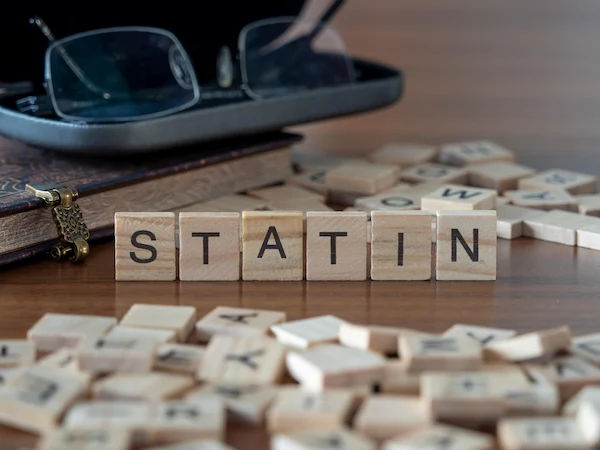Atrial Fibrillation: Overview of Symptoms and Treatment
Learn about atrial fibrillation, including its symptoms, causes, and treatment options. Understand how this common heart rhythm disorder can be managed with medication, lifestyle changes, and medical procedures.

Written by Dr. J T Hema Pratima
Reviewed by Dr. Rohinipriyanka Pondugula MBBS
Last updated on 22nd Aug, 2025

Atrial fibrillation (AFib) is a common heart condition that affects millions of people worldwide. If you or someone you know has been diagnosed with AFib, it’s natural to have questions and concerns. This article will help you understand what atrial fibrillation is, its symptoms, causes, and available treatments, all explained in simple, easy-to-understand terms.
What is Atrial Fibrillation?
Atrial fibrillation is an irregular and often rapid heartbeat that occurs when the upper chambers of the heart (the atria) beat out of sync with the lower chambers (the ventricles). Normally, your heart beats in a steady rhythm, but in AFib, the electrical signals that control your heartbeat become chaotic, leading to an irregular pulse.
This condition can increase the risk of stroke, heart failure, and other heart-related complications if left untreated. However, with proper care and lifestyle changes, many people with AFib can lead healthy, active lives.
Consult a Top Cardiologist
Symptoms of Atrial Fibrillation
Some people with AFib may not experience any symptoms, while others may notice:
Palpitations (a racing, fluttering, or pounding heartbeat)
Fatigue or weakness
Dizziness or lightheadedness
Shortness of breath
Chest pain or discomfort
Fainting (in severe cases)
If you experience any of these symptoms, it’s important to consult a doctor. Early diagnosis and treatment can help prevent complications.
What Causes Atrial Fibrillation?
AFib can develop due to various factors, including:
Age (risk increases after 60)
High blood pressure (hypertension)
Heart disease (coronary artery disease, heart valve problems, previous heart attack)
Chronic conditions (diabetes, thyroid disorders, sleep apnea)
Excessive alcohol or caffeine intake
Obesity
Family history of AFib
Sometimes, AFib can occur without any obvious cause, known as lone atrial fibrillation.
How Does AFib Affect Your Health?
AFib disrupts normal blood flow, which can lead to:
Blood clots – When the heart doesn’t pump properly, blood can pool and form clots, increasing stroke risk.
Heart failure – Over time, an irregular heartbeat can weaken the heart muscle.
Fatigue and reduced quality of life – Persistent AFib can make daily activities difficult.
Diagnosis and Treatment Options
If your doctor suspects AFib, they may recommend:
Electrocardiogram (ECG/EKG) – Measures heart’s electrical activity.
Holter monitor or event recorder – Tracks heart rhythms over time.
Echocardiogram – Uses ultrasound to check heart structure.
Blood tests – To rule out thyroid problems or other conditions.
Treatment Approaches
Treatment depends on the severity of AFib and may include:
1. Medications
Heart rate control (beta-blockers, calcium channel blockers)
Heart rhythm control (anti-arrhythmic drugs)
Blood thinners (to prevent clots and stroke)
2. Procedures
Cardioversion – A controlled electric shock to restore normal rhythm.
Catheter ablation – A minimally invasive procedure to block abnormal electrical signals.
Pacemaker (in rare cases) – Helps regulate heartbeat.
3. Lifestyle Changes
Eat a heart-healthy diet (low in salt, saturated fats, and processed foods).
Exercise regularly (moderate activities like walking, swimming).
Limit alcohol and caffeine.
Quit smoking.
Manage stress (yoga, meditation, deep breathing).
When to Seek Medical Help
If you experience:
Sudden chest pain
Severe dizziness or fainting
Difficulty breathing
Signs of a stroke (sudden numbness, confusion, trouble speaking)
Seek emergency care immediately.
Living with Atrial Fibrillation
With proper treatment and lifestyle adjustments, many people with AFib can manage their condition effectively. Regular check-ups, medication adherence, and healthy habits play a crucial role in maintaining heart health.
Need Expert Advice?
If you suspect AFib or need guidance on managing it, consult a cardiologist. You can book an appointment with Apollo 24|7 for expert care and personalized treatment plans.
Conclusion
Atrial fibrillation is a manageable heart rhythm disorder that, if left untreated, can lead to serious complications like stroke or heart failure. Recognizing the symptoms early and seeking appropriate medical care are essential for effective management. With the right combination of medications, lifestyle changes, and, in some cases, procedures, individuals with atrial fibrillation can lead healthy and active lives while reducing their risk of complications.
Consult a Top Cardiologist
Consult a Top Cardiologist

Dr. Anand Ravi
General Physician
2 Years • MBBS
Bengaluru
PRESTIGE SHANTHINIKETAN - SOCIETY CLINIC, Bengaluru

Dr. Tripti Deb
Cardiologist
40 Years • MBBS, MD, DM, FACC, FESC
Hyderabad
Apollo Hospitals Jubilee Hills, Hyderabad
Dr Moytree Baruah
Cardiologist
10 Years • MBBS, PGDCC
Guwahati
Apollo Clinic Guwahati, Assam, Guwahati

Dr. Zulkarnain
General Physician
2 Years • MBBS, PGDM, FFM
Bengaluru
PRESTIGE SHANTHINIKETAN - SOCIETY CLINIC, Bengaluru

Dr Nazneen Khan
Cardiologist
7 Years • M.B.B.S, M.D (MEDICINE), DrNB CARDIOLOGY
Pune
Apollo Clinic, Viman Nagar, Pune


.webp)

